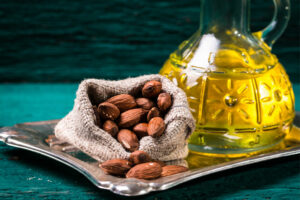Pulmonary fibrosis is a lung condition that causes scarring and damage to the lung tissue. This makes it difficult for the lungs to function properly and can cause shortness of breath. Other common symptoms of pulmonary fibrosis include a dry cough that does not go away, fatigue, and unexplainable weight loss. The average survival time once diagnosed with pulmonary fibrosis is three to five years, making diagnosing PF very scary.
However, eating certain lung-healthy foods can help improve their quality of life. Here are some foods that can help one manage pulmonary fibrosis better:
Coffee
Coffee contains caffeine and polyphenols, which are anti-inflammatory. Not only does it provide one with a daily energy boost, but it also acts as a vasodilator. Vasodilators open up the blood vessels, which helps reduce the symptoms of chronic lung disease for a short while. According to the FDA, the recommended caffeine intake for healthy adults is 400 mg per day, which equals about four or five cups of coffee.
Whole grains
Whole grains, like brown rice, whole wheat, oats, quinoa, and barley are a rich source of fiber, vitamin E, selenium, and essential fatty acids crucial for lung health. According to certain research, people who eat more fiber have better lung function than those who don’t. This is because fiber-rich foods have antioxidant and anti-inflammatory properties, which can help manage lung damage better.
Berries
Berries like blueberries, strawberries, and blackberries are packed with powerful antioxidants such as, malvidin, cyanidin, peonidin, delphinidin, and petunidin. They can help reduce the rate of the lung’s functional decline as they prevent oxidative damage.
Dairy
According to certain research, dairy products such as milk, cheese, and yogurt can help reduce lung inflammation. Yogurt especially, is a rich source of calcium, potassium, phosphorus, and selenium, which can improve lung function and protect against the risk of specific chronic lung ailments. However, if one is asthmatic or dairy intolerant, it is best to avoid these products, as they may cause irritation or excessive mucus production.
Tomatoes
Tomatoes are the best source of lycopene, which is a carotenoid antioxidant. This is known to positively affect lung health by reducing airway inflammation and boosting lung function among people with chronic lung conditions. It has also been linked to reducing the decline of lung function in younger people so that they can live longer, healthier lives. For optimal lycopene absorption, it is best to cook the tomatoes before consumption.
Beetroots
Beetroots and beet greens contain nitrates, which relax the blood vessels, reduce blood pressure, and improve oxygen uptake to boost lung health. They are also a rich source of magnesium, potassium, vitamin C, and carotenoid antioxidants, crucial for preserving lung function over time.
Peppers
Peppers are one of the most potent sources of vitamin C, which acts as a powerful antioxidant and can help reduce oxidative stress on the lungs. Studies have reported that those with a higher vitamin C intake have been found to have better lung function than others. One medium-sized sweet red pepper contains 169 percent of the recommended daily vitamin C intake, making it a great addition to one’s daily food, especially when suffering from pulmonary fibrosis.
Apples
An apple a day can help keep the doctor away, as regular apple intake has been reportedly linked with improved lung function and reduced risk of chronic lung disease. It has also been reported to reduce the risk of asthma and lung cancer, as it contains high doses of flavonoids and vitamin C. It is best to consume them raw, with their skin intact, as the skin is a good source of vitamins, minerals, and fiber.
Pumpkin
Pumpkins are a great source of carotenoids, such as beta carotene, lutein, and zeaxanthin, known to have antioxidant and anti-inflammatory properties. These carotenoids have been linked to improved lung function among older and younger individuals alike. Other foods rich in carotenoids include carrots, grapefruit, bell pepper, leafy green vegetables, broccoli, and tomatoes.
Turmeric
Turmeric has potent antioxidant and anti-inflammatory properties due to its main active ingredient, curcumin. This has been linked to improved lung function and reduction of oxidative stress in the body. It can be sprinkled into food or green smoothies for easy consumption.
Green tea
Green tea has a high concentration of catechins such as Epigallocatechin gallate (EGCG), which has antioxidant and anti-inflammatory properties. It can relieve various inflammatory conditions and inhibit fibrosis or tissue scarring for people with pulmonary fibrosis.
Red cabbage
Red cabbage is an excellent source of anthocyanins, which can help reduce the decline in lung function due to its antioxidant properties. It is also a rich source of fiber, which can further promote lung health.
Olive oil
Olive oil contains antioxidants such as polyphenols and vitamin E, which are anti-inflammatory. These antioxidants have reduced the risk of chronic lung conditions such as asthma, COPD, and pulmonary fibrosis.
Brazil nuts
Brazil nuts are one of the richest sources of selenium, which can help protect against lung cancer and improve respiratory function. It promotes antioxidant function in the body and boosts the immune system to manage conditions like pulmonary fibrosis. These nuts can contain up to 150 percent of the daily recommended selenium intake, so it is essential to limit oneself to one or two nuts a day.
Anchovies
Anchovies are rich in omega-3 fatty acids that have potent anti-inflammatory properties. Other fish rich in omega-3 fatty acids include salmon, mackerel, and tuna. Higher intake of omega-3 fatty acids has been linked to improved lung function, especially among people with chronic lung conditions. Vegan sources of omega-3 fatty acids include walnuts, flaxseed, chia seeds, edamame, and hemp seeds.
Conclusion
Although these foods cannot cure pulmonary or cystic fibrosis, adding them to one’s daily nutrition plan can supplement their medical treatment and disease management.

















